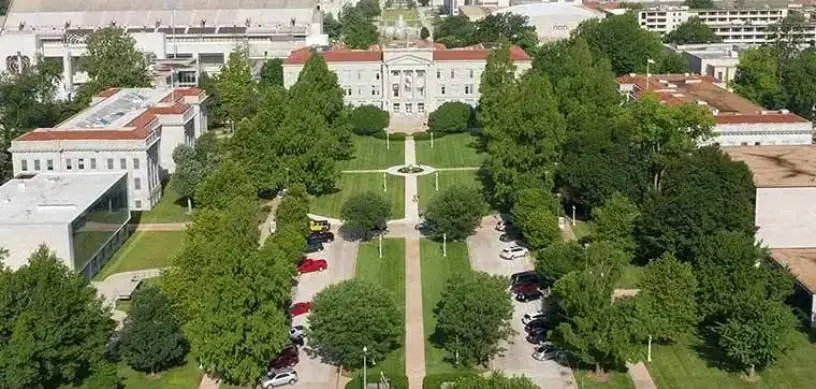There are a number of sought after study abroad destinations viz. the USA, Canada, Australia, the UK, New Zealand, Ireland, etc. Among these, the UK is the most preferred destination. The UK is well-known, both in terms of study or to live. The UK is home to top-notch colleges and universities. The universities in UK have a long standing history and offer a plethora of courses for international students to opt from. Courses in UK are offered across various disciplines viz. Computing, Art and Design, Fashion, Sports Studies, Engineering, Hospitality and Catering, among others. Thus, many students choose to study in UK.
A number of students who desire to study in UK, select capital cities for their education and universities. However, regional cities in the UK house well renowned universities that have excellent teaching methods, experienced faculty, are economical and safe for students.
Pros and Cons of Studying in London:
Residing in the Capital City- London
Home to several finest universities, London has always been an educational hub for international students. In 2018, the capital city was ranked by QS Best student cities as the best student city worldwide.
Pros: Living in London is a major advantage. People belonging from different nationalities thrive in the city. This can be a life-changing experience for students coming from different countries as they are blessed with an opportunity to experience the cuisine, galleries, nightlife and theatre. Additionally, they also get to visit the exquisite tourist attractions.
Cons: To live and study in London is a costly affair for international students. One wishing to study in London should have a budget in mind. Though public transport is available, traveling is expensive. This is dependent on where the student is studying in the capital city as the universities in London are located across various campuses. Students pursuing their higher studies in London need to familiarize themselves with the city transport. The transport can be busy during peak hours and students should be prepared for the same.
From Denmark Hill to Waterloo, King's College London has around 5 campuses spread across the capital city, London. A number of campuses of Imperial College London are located in London and the South East of London. The campuses of London Metropolitan University are located in Aldgate and Holloway.
Academic Status
Well known for its teaching and outstanding universities, many international students prefer to study in London- the capital city.
Pros: The capital city is home to more than 45 colleges and universities that offer a vast array of courses for students to opt from. University College London, Imperial College, King's University, London School of Economics and Queen Mary- the five London based universities, are members of the Russell Group. The universities in London are also famous and rank high in terms of employability.
Cons: Universities in London are known worldwide for their reputation and prestige. Thus, seeking admission at these universities can be quite challenging. Majority of the London universities fail to conduct interviews, instead they accept/reject a student on the basis of the student's academic performance or his/her Statement of Purpose. Prestigious universities in London like the London School of Economics look for grades that are A++ or A.
Employment Prospects
With a plethora of opportunities available for students in London, studying in the capital city aids them in building opportunities for professional development.
Pros: The capital city, an economic hub, is an eminent place to develop one's networking skills. Students, during the course of their study, gain one-year experience or go on a study programme, thus, helping them in their career.
Cons: Though, an economic hub, London does not cater to students but instead professionals. Students are expected to rely on their peers or classmates and student organization, in order to build professional connections or to acquire professional growth.
Studying in Regional Cities: Pros
Huge cities of Manchester, Liverpool, York, Newcastle, Leeds and Sheffield are located to The North of England. On the other hand, Plymouth, Bristol, Exeter and Bath are the cities situated to The South of England. All the above mentioned cities are home to renowned universities that are much sought after by students who wish to study in UK.
Majority of the international students choose to study in Edinburgh, Manchester and other cities because of the following reasons:
Top Notch Academic Standing
Ranked among the top 20 universities and offering a vast array of courses for students to opt from are the Lancaster University (Lancashire), Leeds Beckett University (West Yorkshire), Loughborough University (Leicestershire) and Oxford Brookes University (Oxfordshire).
University of Nottingham (Nottinghamshire) and Staffordshire University (Staffordshire city) are among the many Regional universities that have been conferred gold for their Teaching Excellence Framework. On the contrary, Manchester Metropolitan University (Greater Manchester) and Birmingham City University (Birmingham city in West Midlands), for their teaching excellence, have been conferred a Silver. After graduating, students pursue further studies or are offered a placement at a company within 6 months.
Cost of Living: Lower in Regional Cities than in London
International students who study in UK, are capable of searching for independent housing. The cost of living in Regional cities is lower, thus enabling one to save on his/her budget. Thus in turn means that the student can even afford a car. Regional cities are blessed with both, modern and urban lifestyles.
Easy Travel
It is easier to travel within smaller cities, unlike in London. Students residing within a regional city can walk to their campus and arrive at the city centre within a brief time period. Across cities, the time spent on travel is less. By train it takes 25 minutes to commute from Nottingham to Leicester and around 27 minutes to commute from Loughborough to Nottingham. The capital city is never too far away; it takes around two hours to travel from Birmingham city to London.
Regional cities: A blend of cultures
The capital city alone does not have a diverse population. People belonging to distinct nationalities and cultures reside in the regional cities as well. International students will get an opportunity to interact with others coming from different cultures.
Students choosing to study in UK should choose the right university at the right location in UK after considering all these factors.

For further assistance or queries students can contact us, Edwise International and avail our wide range of services for students on destinations like study in UK, study in USA, study in Canada, study in Australia, study in New-Zealand, study in Singapore, study in Ireland, study in France, study in Germany and many other countries.






